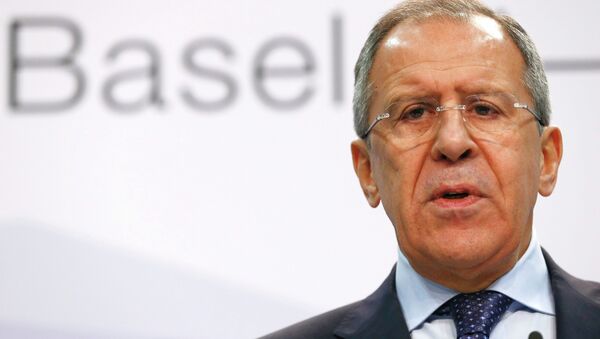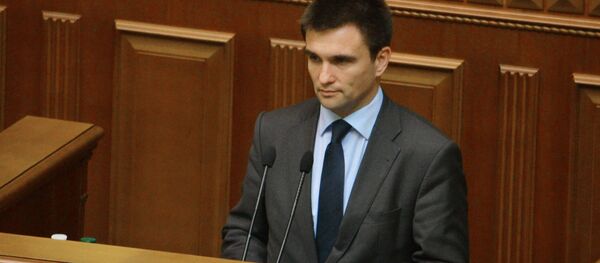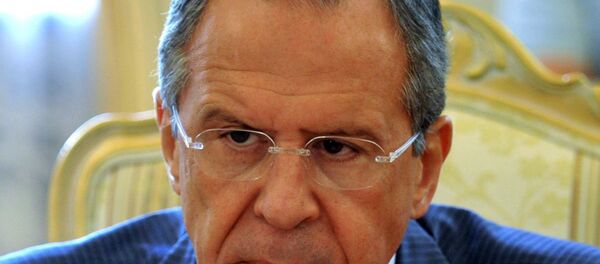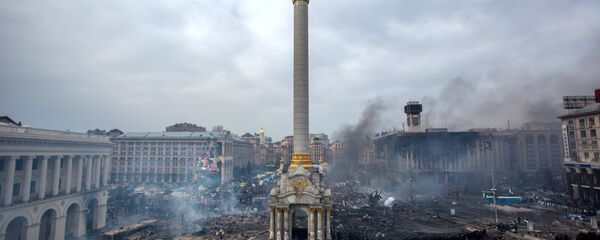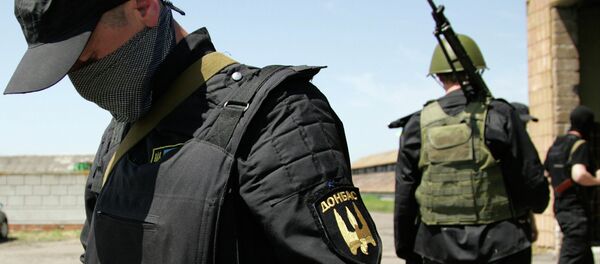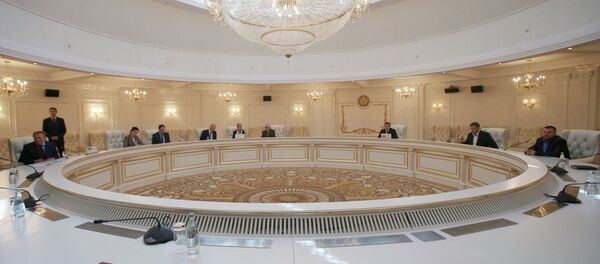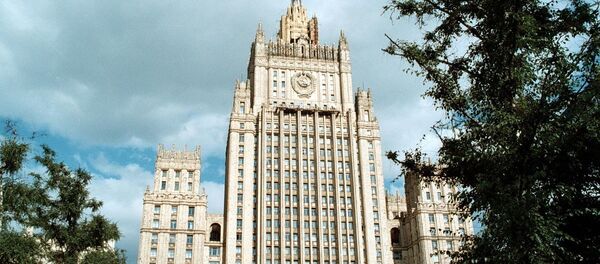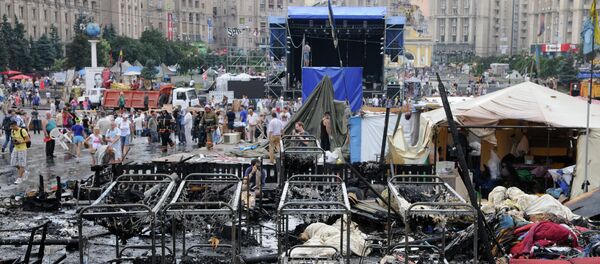“This is not easy, but it seems to me that now they are close to an agreement,” the minister said following talks with his counterparts from member states of the Organization for Security and Co-operation (OSCE) in Europe.
The 21st OSCE Ministerial Council is taking place in Basel, Switzerland on December 4-5.
Following a February coup in Kiev, residents of the Donetsk and Luhansk regions in eastern Ukraine established people's republics that later declared their independence. The Ukrainian crisis escalated in mid-April, when Kiev launched a military offensive against the independence supporters.
The conflicting sides agreed on a ceasefire on September 5 at a meeting of the trilateral Contact Group on Ukraine in Minsk, and signed a memorandum specifying the ceasefire's implementation on September 19. However, both sides have subsequently accused each other of violating the truce.
Ukrainian Lawmakers May Face Criminal Charges Over Anti-Russian Remarks
"This is outrageous and cynical. I think there are grounds for law enforcement bodies to scrutinize this situation for possible [elements of a] criminal case," he said after the Organization for Security and Co-operation in Europe's (OSCE) Council of Foreign Ministers meeting in Basel, Switzerland.
Ihor Mosiychuk, a paramilitary battalion commander and a lawmaker representing the nationalist Radical Party, commented on the recent clash with militants in Chechnya Thursday by saying that "being in the state of war, Ukraine should encourage opening a second and third front in the Caucasus and Central Asia."
Later on Thursday, UN Secretary-General Ban Ki-moon strongly condemned the attack and offered his condolences to the people and government of Russia.
Ukraine Reconciliation Talks Useless Without Donetsk and Luhansk Envoys
"Our Western colleagues… want it this way, they want Russia to speak for self-defense forces in this or that format, but this approach is ideology-laden," he said at a press conference following a foreign ministers' meeting of the Organization for Security and Co-operation in Europe (OSCE) in the Swiss city of Basel.
Ukraine, Russia and the OSCE are currently preparing another round of reconciliation talks between the government in Kiev and militias in Ukraine's eastern provinces of Luhansk and Donetsk.
Previous peace talks took place in early September. The peace process was laid out in the September 5 ceasefire deal agreed in the Belarusian capital of Minsk at a meeting of the Contact Group on Ukraine, which included representatives from Ukraine, the OSCE and Russia. Another round of Minsk talks resulted in a memorandum specifying the implementation of a ceasefire regime.
The armed conflict in Ukraine began in mid-April, when Kiev launched a military operation against independence supporters in the country's southeast.
Some of OSCE Foreign Ministers Critical of Kiev Leadership’s ‘Inhumane’ Laws
Speaking about meeting his counterparts from the Organization for Security and Co-operation in Europe (OSCE) member states, Lavrov said he asked whether they approve of the Ukrainian government's actions.
"They replied: of course not, the law on vetting is terrible, the bill to cut the southeast [of Ukraine] from the economic and financial system is ill-considered, harmful, inhumane," the foreign minister said.
Russia's Foreign Minister Sergei Lavrov later called Poroshenko's decision an attempt to "choke the region" in the wake of another military intrusion. On Wednesday, the director of Human Rights Watch, a global rights watchdog, called on the Ukrainian government to reconsider its decision saying there were vulnerable groups of people in the east whose survival depended on social benefits.
In another controversial move, the parliament of Ukraine adopted a law in mid-September that allows for the so-called "anti-corruption screenings" for about one million public officials, law enforcement agents and the entire Cabinet. A UN report in November raised concern about the vetting guidelines, which it said did not comply with international standards in that the law established "overly broad" vetting grounds and a principle of collective responsibility.
Foreign chiefs of Ukraine, Russia and OSCE member states are currently meeting in the Swiss city of Basel to prepare another round of reconciliation talks between the government in Kiev and militias in Ukraine's eastern provinces of Luhansk and Donetsk.
